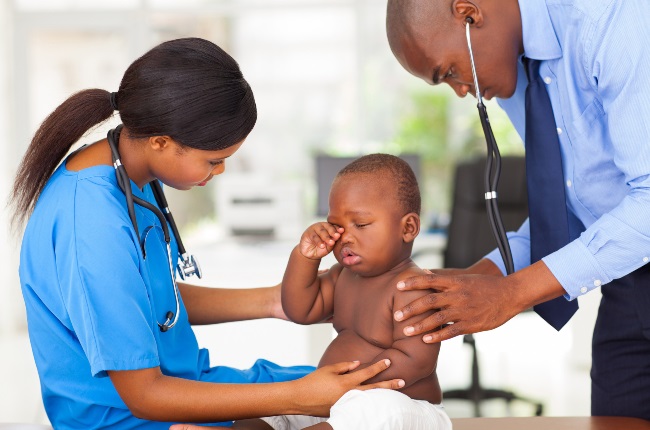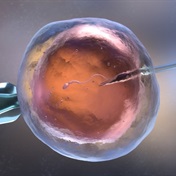
We’ve grappled with Covid-19 and seem to have largely won the battle.
Hand washing, mask-wearing and sanitising are just some of the personal hygiene measures that have helped us reduce the spread of this pandemic.
But in many sub-Saharan countries, inadequate access to clean water means that preventable illnesses such as diarrhoea can spread easily in poorer communities.
Read more | Kids under 14 account for 1 in 3 drownings in SA. Here’s where to go for survival swimming lessons
Breastfeeding, a clean safe water supply, appropriate hand-washing and good sanitation should help prevent most cases of diarrhoea, and yet “diarrhoea remains a leading killer of young children, despite the availability of a simple treatment solution”, warns the United Nations Children’s Fund (Unicef).
“In the past, for most people, severe dehydration and fluid loss were the main causes of diarrhoea deaths,” says the World Health Organisation (WHO), which defines diarrhoea as “the passage of three or more loose or liquid stools per day (or more frequent passage than is normal for the individual)”.
“Now, other causes such as septic bacterial infections are likely to account for an increasing proportion of all diarrhoea-associated deaths.
Closer to home, research shows that diarrhoea is closely linked to socioeconomic status, and that children in South African living in poverty are approximately 10 times more likely to die from diarrhoea than their more privileged counterparts.
“Many under-privileged children in South Africa do not have adequate access to clean, drinkable water and quality early childcare and development,” says Momeena Omarjee of multinational pharmaceutical and healthcare company Sanofi.
“They also experience limited access to health and nutrition services. KwaZulu-Natal, for example, is experiencing outbreaks of diarrhoea and other water-borne diseases due to the recent floods.”
Children who are less than half-a-year-old are particularly vulnerable.
“Babies younger than 6 months are most at risk of dehydration, because their bodies haven’t developed to the point where they can handle the significant loss of fluid caused by vomiting or a runny stomach,” explains Momeena, the pharmaceutical giant’s Consumer Healthcare Country Head: Scientific Affairs, SA.
Deaths caused by diarrhoea among children under the age of five are highest in South Asia and sub-Saharan Africa, according to the Unicef.
If your child has diarrhoea and is refusing to take medicine or vomits up anything you’ve tried to give them, this is a serious situation, because they may become dehydrated.
These are the danger signs to watch out for:
• blood in the stool – especially with fever
• severe and worsening cramps
• dry mouth
• sunken fontanelle (soft spot on the top, back, and sides of your baby’s head)
• sunken eyes
• absence of tears
• unusually fast heart rate or fast breathing
• listlessness
• decrease in the number of wet nappies
If the diarrhoea and vomiting has continued for more than 4-6 hours, you should have your child assessed by a healthcare provider urgently; if the illness strikes at night, visit your nearest emergency centre.
“Frequent passing of formed stools is not diarrhoea, nor is the passing of loose, ‘pasty’ stools by breastfed babies,” the WHO clarifies.
“Diarrhoea is usually a symptom of an infection in the intestinal tract, which can be caused by a variety of bacterial, viral and parasitic organisms. Infection is spread through contaminated food or drinking-water, or from person-to-person as a result of poor hygiene.
“Interventions to prevent diarrhoea, including safe drinking-water, use of improved sanitation and hand washing with soap can reduce disease risk.”
Read more | SA clinics’ shortage of injection contraceptive putting girls, women at risk of unwanted pregnancy
Should your child have mild-to-moderate dehydration, try to give them fluids as soon as possible. You can pick up oral rehydration solution from any pharmacy.
• First wash your hands well. Have a clean bottle or jug ready
• You will need clean water, salt, and sugar. The water can be bottled drinking water or water that has been boiled and left to cool
• Mix 2.5 ml (half a level teaspoon) of salt and 6 level teaspoons of sugar
• Add 1 litre of clean water and mix until the salt and sugar dissolve
Give babies/infants 500 ml per 24 hours. Children aged 2-9 years should be given 1 litre per 24 hours, and children over 10 and adults: 3 litres per 24 hours.
Encourage your child to drink small amounts of the oral rehydration solution or, if you’re breastfeeding, keep up with your schedule, as breast milk is an ideal fluid for rehydration.
The child can be fed with milk and porridge as usual if above the age of six months, but food isn’t the main priority when you’re trying to manage diarrhoea and vomiting. It’s far more important to ensure that your child takes in fluids after every diarrhoeal episode in order to replace lost fluids and electrolytes.
"The leading causes of death in children under the age of five are preterm birth complications, birth asphyxia/trauma, pneumonia, diarrhoea and malaria, all of which can be prevented or treated with access to affordable interventions in health and sanitation," says the WHO.
To this end, Sanofi is donating water tanks and rolling out an awareness programme among early childhood development centres in KZN to educate people about diarrhoea.



















